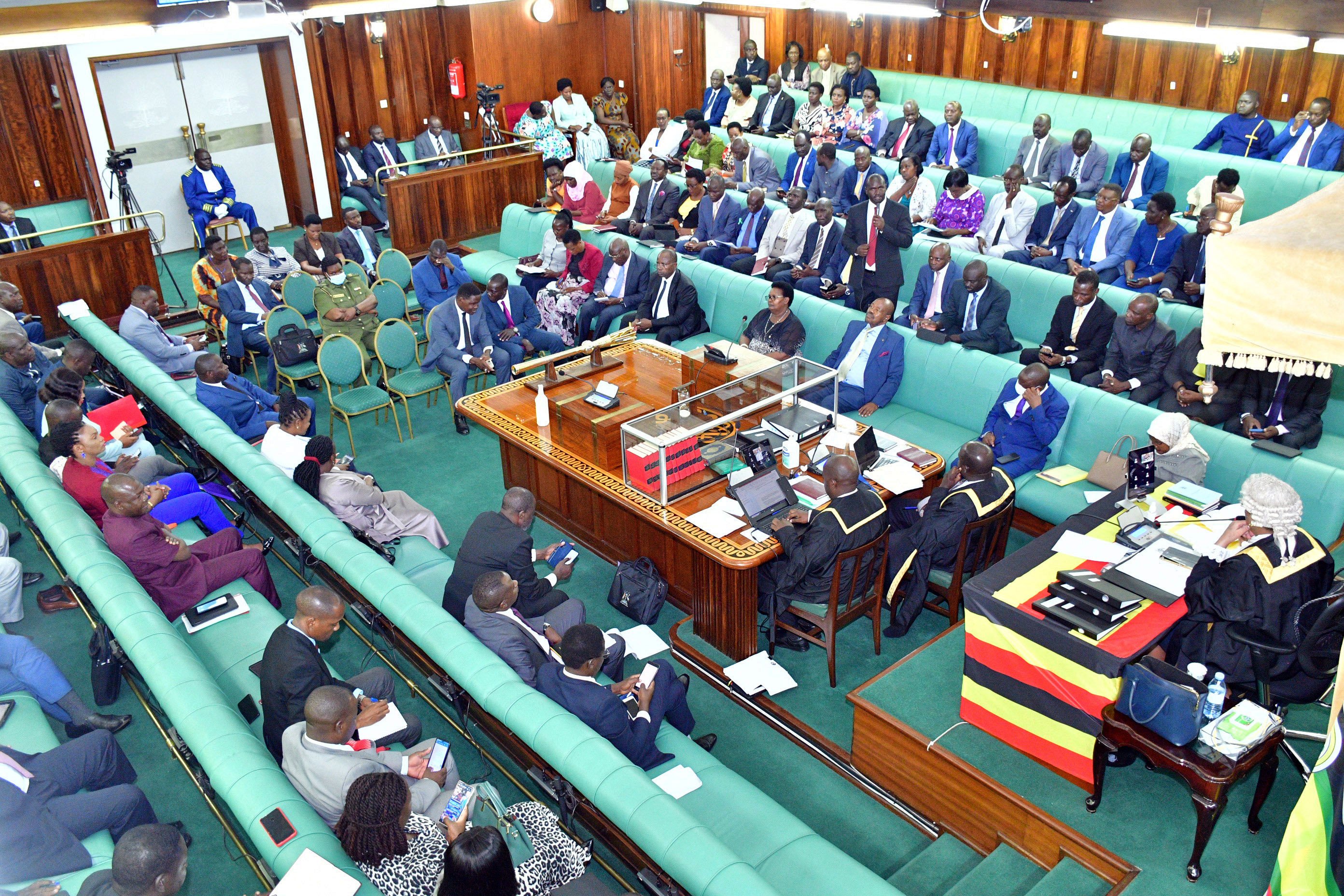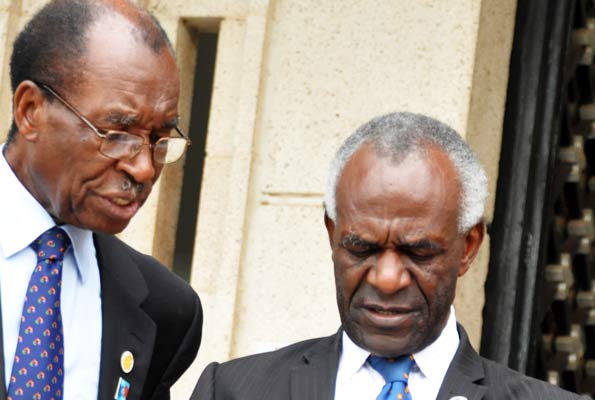Prime
Why is Museveni at odds with Bill on local content?

Members of Parliament during a plenary session chaired by Speaker Anita Among on May 17. PHOTO/FILE
What you need to know:
- The KCCA leaders told the Committee on Commissions, Statutory Authorities and State Enterprises (Cosase) that the African Development Bank (AfDB)—where the loan was sourced—set tough requirements that knocked out Ugandan entities.
Opposition legislators have amplified the call for President Museveni to sign the National Local Content Bill into law. In this explainer, Arthur Arnold Wadero delves into the various sticking points.
What does the Bill hold out?
Mr Patrick Nsamba Oshabe, the Bill’s brainchild, says it has the potential to catapult Uganda’s economy to greater heights.
The Bill that was passed by Parliament last March, sets out to, among others, ensure that Ugandans are not left on the fringes during the execution of key projects.
It particularly spotlights the repatriation of profits by foreign investors.
What’s the recent hullabaloo all about?
When appearing before a House committee, Kampala Capital City Authority (KCCA) leaders last week revealed that they had awarded the road rehabilitation projects in Kampala to Chinese-owned entities.
The KCCA leaders told the Committee on Commissions, Statutory Authorities and State Enterprises (Cosase) that the African Development Bank (AfDB)—where the loan was sourced—set tough requirements that knocked out Ugandan entities.
In an awarding notice seen by Monitor, at least five Chinese-run firms were in February entrusted to undertake the road revamping processes in the city under the Kampala City Road Rehabilitation Projects (KCRRP).
These include: China Railway 18th Bureau Group Company Limited, Zhongemei Engineering Group Limited, China Geo Engineering Corporation, Chongquing International Construction Corporation (CICO), and the China Wu Yi Co Limited.
Is there any foul play?
As per details carried in the same notice dated February 9—and signed by KCCA’s Deputy Director, Procurement and Disposal Unit, Mr Dareen Akankwasa—the said firms successfully came through a competitive bidding process that opened up to international firms.
Tucked under the KCRRP is an upgrade to paved standard of 3.94km, reconstruction of 8.10km, and reconstruction and dualling of 3.90km of roads—including signalisation of two junctions in Kawempe, Lubaga, Makindye and Central divisions.
While the Opposition has made clear its displeasure with the government not promoting local content, Mr Museveni used his State-of -the-Nation Address last week to reduce the concerns to a storm in a teacup.
He decried what he called a tendency by government authorities and a section of Ugandans whom he faulted for allegedly frustrating efforts to bolster the economy by “tossing investors” and engaging in corruption.
“So this tossing up of investors must stop. This is the biggest problem that must stop. You need to kusikiriza (attract),” Mr Museveni said, while speaking off script, adding that local content is a “small issue.”
Is it really a small issue as the President suggests?
In May last year, the leadership of the local contractors in the roads sector under the Uganda National Association of Building and Civil Engineering Contractors (UNABCEC) told Parliament that the Uganda National Roads Authority (Unra) owed them Shs500 billion.
Mr Jameson Olonya from UNABCEC further revealed that the government’s indebtedness to many local firms has left them “having so many challenges associated with loans” that had been secured to finance projects.
Mr Olonya was appearing before the House committee on Physical Infrastructure together with Mr Musa Ecweru, the junior Works minister, and Ms Allen Kagina, the Unra executive director.
So what next?
Mr Nsamba insists his Bill provides the much-needed guard rails for local firms. It also, he adds, ultimately makes them competitive.
The Bill chiefly demands that “a person using public money or utilising Uganda’s natural resources or carrying on an activity requiring a licence; to prioritise Ugandan resident companies and citizens in public procurement”.
This is meant to, among other things, “provide for the development of local content plans” and strengthen the ability of Uganda’s local muscle in terms of supervision, coordination, monitoring and implementation of domestically generated content.
Will the Bill suffer a stillbirth?
It’s hard to tell. The Bill was first processed and passed by the 10th Parliament on May 20, 2020.
However, on August 20, 2020, Mr Museveni returned it to Parliament with concerns over specific clauses.
The concerns were addressed and passed, but the Bill later lapsed following the end of the Tenth Parliament’s term. It wasn’t until May 3, 2022, that the Bill was amended to National Local Content Bill, 2022.
Last September, Parliament passed the National Local Content Bill, 2022, but it was returned.
Writing on March 1, 2023, Mr Museveni pointed to the need to revisit a string of clauses.
The President indicated that the National Local Content Bill should only apply to public sector procurement matters.
According to the report on the Bill from the committee dated March 15, the President indicated that the Mining Act, Electricity Act, Uganda Tourism Act and the PPDA Act all held provisions on local content.
These were among the major areas that the members of the parliamentary Committee on Finance worked on before it was brought before the whole House in March this year and was passed.
The Bill is now ready for assent before President Museveni, but it is unclear if the head of state will sign on the dotted line.




